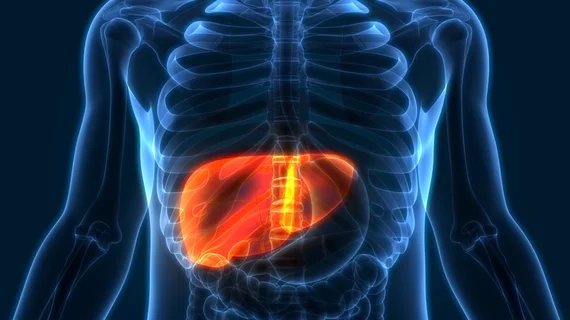Radiation therapy extends progression-free survival in patients with hepatocellular carcinoma
Research presented this week at the American Society for Radiation Oncology Annual 2022 Meeting argues for the inclusion of radiation therapy as a standard of care in liver cancer patients who are ineligible for resection and other standard therapies.
Based on the results of the NRG Oncology/RTOG 1112 trial, researchers found that adding radiation therapy to systemic therapy (sorafenib) can extend overall survival and delay tumor progression in patients with advanced liver cancer. Encouragingly, for the patients who received the added treatment in the trial, the addition of radiation therapy did not come at the expense of increased adverse side effects, lead author of the study Laura A. Dawson, MD, FASTRO, radiation oncologist at the Princess Margaret Cancer Centre/University Health Network in Toronto, and colleagues shared.
“In all regards, the combination of radiation therapy and sorafenib appears more effective than the drug on its own,” the authors shared.
In all, 193 participants were included in the trial. They were divided into two groups—those a group that received sorafenib alone and a group that first underwent stereotactic body radiation therapy (SBRT) followed by sorafenib.
The group that underwent the combination treatment had better overall survival (15.8 vs. 12.3 months) compared to the group that received sorafenib alone. Progression-free survival also increased from 5.5 months with sorafenib alone to 9.2 months with the combination therapy.
Side effects were similar between the two groups, with 42% of the sorafenib group and 47% of the combination group experiencing serious side effects.
When the trial began, sorafenib was the only FDA-approved first-line treatment for hepatocellular carcinoma. Since then, multiple molecular targeted drugs and immune checkpoint inhibitors have come into play. The availability of these treatments resulted in the trial closing earlier than planned, but researchers involved in the work are optimistic that their findings will provide evidence that supports the inclusion of radiation therapy for these patients who have not responded to other treatments.
“There is a growing number of preclinical and early clinical studies suggesting that SBRT may be synergistic with immunotherapy, with more than an additive benefit for patients,” the authors wrote, adding that future studies should focus on other combinations that include SBRT.
To learn more, click here.

